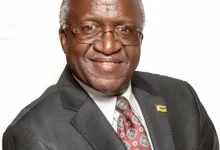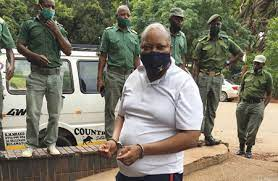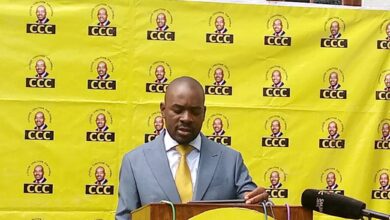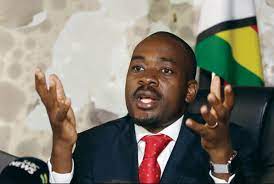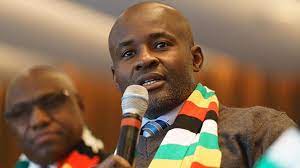Why Zimbabweans Shunned the By-elections Amid Political Crisis

By Lovejoy Mutongwiza
Zimbabwe’s by-elections held on Saturday for nine vacant parliamentary seats were supposed to be a routine exercise of democracy. Instead, they turned out to be a farce that exposed the deepening political crisis in the country and the erosion of public trust in the electoral system.
The nation, hungry for political change, witnessed a surge in the number of rejected votes and turned-away voters, painting a somber picture of dissatisfaction within the electorate.
The figures tell a tale of discontent that unfolded across various constituencies. In Beitbridge West, 307 votes were rejected, while Binga North saw a staggering 774 rejected ballots. Bulawayo South, Cowdray Park, Lobengula-Magwegwe, Lupane East, Mpopoma-Mzilikazi, and Nketa constituencies followed suit with 385, 572, 457, 592, 519, and 324 rejected votes, respectively.
These numbers are not merely statistics; they are the voice of a disgruntled electorate, seeking to express their dissatisfaction through unconventional means.
Voter fatigue, a term that had been whispered in political circles leading up to the by-election, emerged as a palpable force on December 9th. The weariness among voters was evident, and the rejected votes became symbolic of the growing disillusionment with the political process. It was not a mere oversight but a deliberate act, a form of silent protest against a system that many felt had failed them.
One cannot ignore the role of voter turnout in this narrative. The increased number of voters being turned away speaks volumes about the challenges faced by the electoral system. Whether due to logistical issues, outdated voter rolls, or other administrative hurdles, the outcome was the same — a growing sense of frustration among citizens who had come to exercise their democratic right.
The reasons behind the rejection of votes were multifaceted. Some voters deliberately spoiled their ballots as an act of defiance, a visual expression of their dissatisfaction with the available choices. Others, faced with confusing ballot papers or inadequate voter education, unknowingly invalidated their votes. The diverse reasons behind the rejected votes reflect the complexity of the issues at play.
In Beitbridge West, for instance, a significant portion of rejected votes was attributed to unclear instructions and inadequate voter education. Binga North, on the other hand, witnessed a surge in protest votes, with many citizens deliberately opting for invalid ballots to make a bold statement about their discontent.
The aftermath of the by-election signals a need for introspection within Zimbabwe’s political landscape.
Leaders must address the root causes of voter fatigue, ensuring that citizens feel heard and represented. Additionally, a comprehensive review of the electoral process is imperative to identify and rectify the shortcomings that led to the rejection of votes and the turning away of eligible voters.
The by-elections were triggered by the controversial recall of nine opposition lawmakers from the Citizens Coalition for Change (CCC), the main challenger to the ruling ZANU-PF party, by a self-proclaimed secretary-general of the party, Sengezo Tshabangu.
Tshabangu claimed that the recalled MPs had ceased to be members of the CCC, a charge that was dismissed by the party’s leader, Nelson Chamisa, who accused Tshabangu of being a ZANU-PF agent.
The CCC challenged Tshabangu’s authority and the legality of the recalls in court, but the judges ruled in favour of Tshabangu and declared the CCC candidates ineligible to run in the by-elections. The CCC appealed to the Supreme Court, but the appeal was not heard before the polls. In one constituency in Harare, the capital, the ZANU-PF candidate was declared the winner unopposed after a last-minute court order blocked the CCC candidate.
The CCC denounced the by-elections as a sham and a travesty of justice, and urged its supporters to boycott the polls. The party said the recalls were part of a systematic campaign by ZANU-PF to decimate the opposition and gain a two-thirds majority in Parliament, which would enable it to amend the constitution and extend President Emmerson Mnangagwa’s rule beyond 2028.
According to the Election Resource Center, an independent observer group, the voter turnout ranged from 12% to 38% in the nine constituencies, well below the national average of 70% in the general election. The group also reported incidents of vote buying and intimidation by ZANU-PF supporters and agents.
ZANU-PF won seven of the nine seats, while Tshabangu’s faction of the CCC won two. The ruling party now has 184 out of 280 seats in Parliament, just three short of the two-thirds majority. More by-elections are expected in the coming months, as Tshabangu has recalled dozens more CCC lawmakers, councillors and mayors.
The low voter turnout in the by-elections reflects the growing disillusionment and frustration of Zimbabweans with the political system, which they perceive as rigged and unresponsive to their needs. The by-elections also revealed the weakness and fragmentation of the opposition, which has failed to unite and offer a credible alternative to ZANU-PF.
Another independent election observer group, the Zimbabwe Election Support Network (ZESN) said the recalls were largely to blame for the low voter turnout.
“Zesn observers reported that there were low numbers of people who turned up to exercise their constitutional right to choose a representative of their choice in the National Assembly and local authority by-elections. Furthermore, most of the voters who were turning up to vote were largely females,” ZESN said.
“Recalls affect democratic essence and this has been evidenced by the decreasing numbers in voter turnout in by-elections held so far since the 2023 harmonised elections.
“Whereas section 67 of the Constitution of Zimbabwe states that ‘every Zimbabwean has the right to vote’, there seems to be fewer uptake on exercising this constitutional right to elect leaders by eligible voters in Zimbabwe during by-elections,” ZESN further stated.
ZANU-PF denied any wrongdoing and dismissed the allegations as baseless and unfounded. The party’s spokesperson Christopher Mutsvangwa said ZANU-PF had nothing to do with the internal disputes within the CCC, and blamed Chamisa for failing to resolve the leadership crisis that has plagued the opposition.
The by-elections have shown that Zimbabwe’s democracy is in peril, and that the country needs urgent reforms to restore public confidence in the electoral system and the rule of law.
The by-elections have also shown that Zimbabweans are hungry for change, and that they deserve a genuine choice and a voice in their governance


